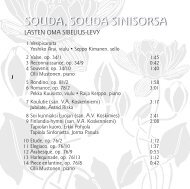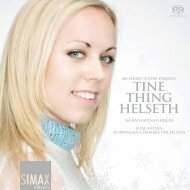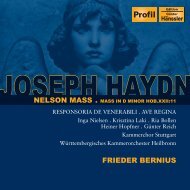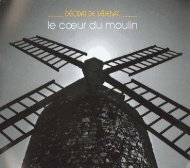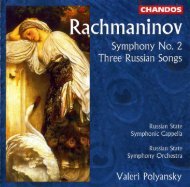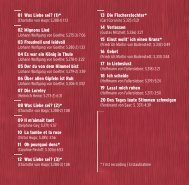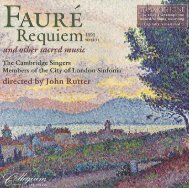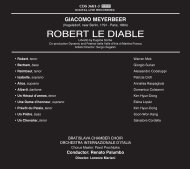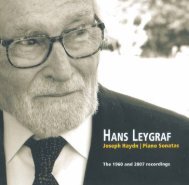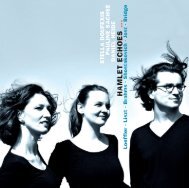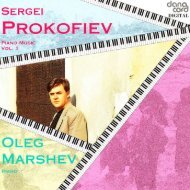You also want an ePaper? Increase the reach of your titles
YUMPU automatically turns print PDFs into web optimized ePapers that Google loves.
<strong>Gi</strong> <strong>llii</strong>
Standchen Op. 17 No. 2 A.F. von Schock<br />
Leises Lied Op. 39 No. 1 Richard Dehmel<br />
Wiegenliedchen Op. 49 NO. 3 Richord Dehmel<br />
LIEDER OHNE OPUS<br />
Rote Rosen Karl Stieler<br />
Die erwachte Rose Fr. Sallet<br />
Malven Betty Knabel<br />
MADCHENBLUMEN OP. 22<br />
No. 1 Kornblumen Felix Dohn<br />
No. 2 Mohnblumen Felix Dahn<br />
No. 3 Epheu Felix Dohn<br />
No. 4 - Wasserrose Felix Dohn<br />
FUNF LIEDER OP. 48<br />
No. 1 Freundliches Vision Otto Julius Bierboum<br />
No. 2 Ich schwebe Karl Henckell<br />
No. 3 Kling! Kod HenckeU<br />
No. 4 Winterweihe Karl Henckell<br />
No. 5 - Winterliebe Karl Henckell<br />
Schlagende Herzen Op. 29 No. 2 Otto Julius Bierboum<br />
Muttertanderlei Op. 43 No. 2 Gottfried August Bfirger<br />
Das Bachlein Op. 88 No. 1 Goethe<br />
Amor Op. 68 No. 5 Clemens Brentano<br />
DREI LIEDER OP. 69<br />
No. 1 - Der Stern A, von Arnim<br />
No. 2 - Der Pokal A. von Arnim<br />
No. 3 - Einerlei A. van Arnim<br />
DREI LIEDER DER OPHELIA OP. 67<br />
No. 1 Wie erkenn ich mein Treulieb Shakespeare<br />
No. 2 Guten Morgen, is6 Sankt Valentins Tag Shokespeore<br />
No. 3 - Sie trugen ihm auf der Bahre, bloss Shokespeore<br />
Total playing time: 61)'08"
I FOREWORD<br />
"I thank my Almighty Creator for the gift and inspiration of the female voice."<br />
R. Strauss<br />
It is in that same spirit of gratitude that generations of singers have been inspired by<br />
Strauss' devotion to the art of song. When I first encountered the wealth of vocal<br />
repertoire from a composer who so clearly understood the human voice, I was amazed at<br />
the scope of expression contained within each perfect miniature. Recording this<br />
programme of specially chosen Lieder has long been a dream of mine.<br />
In this collection you will find many songs that have earned their place in the standard<br />
repertoire; however my imagination was seized by less-often heard works such as<br />
Madchenblumen and Drei Lieder der Ophelia, which compliment his more familiar Lieder<br />
and are, for me, at the heart of this recital.<br />
I have long marvelled at Strauss' consistent ability to bring out the best in a singer.<br />
Amongst his contemporaries, his particular reverence for the female voice is unique. We<br />
sopranos are blessed to have such an abundance of unparalleled music from which to<br />
draw. From the dramatic, to the lyric, to the coloratura, Strauss' songs offer something<br />
very special to each voice.<br />
Recorded in the Music Room, Champs Hill, 29th & 30th April, 1st May 2009<br />
Produced by Atexander Van Ingen<br />
Engineered & mastered by Dave Hinitt<br />
Edited by Stephen Frost<br />
all for Six Music Productions (wwwv.sixmp.net)
I RICHARD STRAUSS: SELECTED LIEDER<br />
In song-writing, as in orchestral music, Richard Strauss hit his stride early. Something of<br />
his range and confidence is displayed in this group of songs; as the selection shows, he<br />
wrote some superb examples in his teens, and by his mid-twenties was already an<br />
assured master of the Lied. (Success in opera would take rather longer.) His mastery<br />
continued to develop into old age.<br />
Stiindchen, to a poem by Adolf von Schack, was composed in the summer of 1887, when<br />
the composer was 23, and has become possibly the best-known of all Strauss's songs: it<br />
became so popular, and circulated in so many arrangements, that it has been said it<br />
made its composer a household name all on its own. The lightness of touch in both<br />
accompaniment and the shaping of the melody are in fact very unlike the style of most<br />
of his other early songs, but the glowing ardour of the climax is utterly characteristic of<br />
his best music at any period. Leises Lied is one of several songs Strauss wrote to poems<br />
by the influential contemporary poet Richard Dehmel (also set by Zemlinsky and<br />
Schoenberg). Composed in July 1898, this is a rather enigmatic, almost impressionistic<br />
setting, which has been seen as one of Strauss's nearest approaches to the style of his<br />
contemporary Debussy. Wiegenliedchen, another Dehmel setting from 1901, reveals the<br />
often-controversial poet as a masterly writer of children's poetry, to which Strauss<br />
responds with a delightful Little essay in rocking berceuse rhythms.<br />
The threeflower songs without opus number consist of two of Strauss's earliest Lieder,<br />
and his very Last song of all. Die erwochte Rose, written in January 1880, was one of a<br />
pair of settings of words by the theologian Friedrich von Sallet, and shows the 15-yearold<br />
composer was rather in thrall to Mendelssohn. Rote Rosen, from September 1883,<br />
sets a Lyric by the Munich poet Karl Stieler. Strauss liked the poem a great deal, but felt<br />
his song had not turned out very well and decided not to publish it. It was not<br />
premiered until 1958, when Elisabeth Schwarzkopf sang it before an audience of<br />
thousands in Carnegie Hall, New York. Malven (The Mallows) also had a posthumous<br />
premiere. A setting of a poem by Betty Wehrii-Knobel, this charming song was<br />
completed in November 1948 - that is, after the composition of Strauss's famous Four<br />
Last Songs. Shortly before his death Strauss gave the manuscript to the singer Maria
Jeritza, who kept it until her own demise. The first performance did not take place<br />
until 1985.<br />
Flowers are interpreted in a different way in Strauss's op. 22. In 1888 he was drawn to<br />
the work of the poet and historian Felix Dahn, whose reputation in Munich (he was a<br />
professor at the University) was then at its height. The four songs that constitute<br />
Madchenblumen make up a short song-cycle in which the poet finds flower-equivalents<br />
for different kinds of girls. Though the poems now inevitably sound dated and<br />
sentimental, Strauss's settings - dedicated to his friend, the tenor Hans <strong>Gi</strong>essen - are<br />
delightful. He produces tender lyricism for the cornflower, trills and highly-coloured<br />
modulations for the red poppy, an easy-going dose of sentiment for the ivy, and<br />
rippling figuration for the water-rose.<br />
While op. 22 is minor (though highly enjoyable) Strauss, the five songs of op. 48,<br />
composed 12 years Later in 1900, contain some of his finest inspirations. Though four<br />
of the five songs are to poems by Karl Henckell, the set opens with the celebrated<br />
Freundliche Vision - a setting of a poem by Otto Julius Bierbaum. Bierboum was a<br />
popular satirist who tried to instil a new simplicity into verse (his poetry was the<br />
inspiration of the Uberbrettl cabaret in Berlin, for which Schoenberg wrote his Brettl-<br />
Lieder), but he also had his more decadent side, as is clear from the outright dreamy<br />
nostalgia of this poem, and he often inspired Strauss to golden flights of melody. The<br />
two men had been friends, but this was about to change when Bierbaum criticized<br />
Strauss's choral ballad Jaillefer in print, and as a result Freundliche Vision was the last<br />
Bierbaum poem that he set. This song is another well-loved gem within Strauss's<br />
extensive song-output; it is also one of the most sophisticated in technique in its<br />
evocation of Bierbaum's picture of domestic paradise. The idea of living side by side<br />
'with one who loves me ... in beauty and peace' was part of the essence of Strauss's<br />
own personal romantic feelings.<br />
Of the Henckell settings, Ich schwebe is a swift, bell-like waltz which apparently<br />
emanates from ideas Strauss had been considering for a ballet; and the bell-imitations
(this time in the voice) persist in the ebullient following song, Kling! ..... . The Last<br />
two songs, both of which Strauss later orchestrated in 1918, are concerned with<br />
winter, and indeed form a complementary pair, the melancholy of Wintenveihe (a poem<br />
also set by Schoenberg) giving way to the ardent declaration of love in Winterliebe.<br />
Both songs seem to look fonvard to two of his later operas, Die Frau ohne Schatten<br />
and Arabella.<br />
An earlier Bierbaum setting is Schlagende Herzen, composed in June 1895 to the kind<br />
of raffish poem that made Bierbaum such a natural writer of cabaret songs. Strauss -<br />
who had just completed Till Eulenspiegels lustige Streiche - responds with gaiety to<br />
the words, and takes up the idea that the Lovers' beating hearts are in fact ringing like<br />
little bells. Muttertanderlei, an effervescent little jewel of a song to a poem by the<br />
great ballad-poet Gottfried August Biirger, was composed on 15 August 1899 and<br />
orchestrated about six months afterwards as one of a group of three Mutterlieder<br />
(Mother-songs) which Strauss's wife Pauline, now mother to his son Franz, sang<br />
several times in concert.<br />
Das Bachlein is a comparatively Late song, to words supposedly by Goethe (though<br />
there is some doubt as to whether he was indeed the poet). Composed in December<br />
1933, it has its uncomfortable aspects, for Strauss dedicated it to Dr Joseph Goebbels,<br />
apparently as a courtesy for having been appointed President of the<br />
Reichsmusikkammer the previous month. The appointment would bring him nothing<br />
but disenchantment, but the fact that the poem's last Line contains the words 'mein<br />
Fuhref - to which Strauss gives a three-fold repetition - has provided ammunition for<br />
commentators who wish to find Strauss guilty of support for the Nazi regime. In all<br />
other respects it is a beautiful song, with a Schubertian, folk-like main melody that<br />
Strauss treats with all the gentle sophistication at his command.<br />
Amar is one of a set of six songs from 1918 to words by Clemens Brentano, one of the<br />
two authors of the great collection of German folk-poetry, Des Knaben Wunderhorn.<br />
The poem does not come from the anthology but furnishes Strauss with the perfect
spur to write a bravura song for a coloratura soprano, impersonating the<br />
shepherdess who puts herself in danger by sheltering the little blind child-god who<br />
has singed his wings. Later in 1918 Strauss turned his attention to Brentano's<br />
friend, brother-in-law and fellow-Wunderhorn author Achim von Arnim, in the first<br />
three of a set of five Kleine Lieder, op. 69. Arnim's poem Der Stern celebrates the<br />
appearance of a comet in 1811 as an encouraging omen for German Liberty but at<br />
the same time Longs for peace, and Strauss's setting, with its folksong-style<br />
simplicity, stresses the second interpretation. The composer told his friend Max<br />
Marschalk that this song was a case where the musical inspiration came to him<br />
immediately, while reading the poem, and he wrote it down on the spot. Der Pokal<br />
is a high-spirited drinking-song. Einerlei is something more subtle, based on a<br />
mere poetic fragment in which von Arnim celebrates 'sameness' as the fount of 'so<br />
much diversitj. Strauss set the words to a highly memorable phrase on which he<br />
then rings a host of changes and variations both melodic and harmonic.<br />
It was around the same time that he wrote these Arnim and Brentano settings that<br />
Strauss composed three 'Songs of Ophelia' from Shakespeare's Hamlet (in the<br />
translation of Karl Simrock). He was currently engaged in a bitter dispute with the<br />
publishers Bote und Bock (whom he had satirized outrageously in the song-cycle<br />
Kriimerspiegel, op. 66). but was Legally bound to supply them with a certain<br />
number of Lieder, and so gave vent to his feelings by producing some 'mad songs'.<br />
The first song, Wie erkenn ich mein Treulieb?, vividly depicts the wandering mind of<br />
Ophelia as she searches for her dead lover, with its syncopated dissonances and<br />
hesitant, roving melody. Guten Morgen, ist's Sankt Valentins Tag represents Ophelia's<br />
demented babbling to the King and Queen with random alternations of major and<br />
minor and a completely fragmentary design. Finally Sie trugen ihm aufder Bahre,<br />
bloss penetrates to a sense of genuine tragedy with its broader melody and sense<br />
of grim finality.<br />
Notes O Malcolm MacDonald
1 SIMON LEPPER<br />
Simon Lepper was educated at King's College, Cambridge and the Royal Academy of<br />
Music, He is currently professor of piano accompaniment at the Royal College of<br />
Music and teaches at the Royal Welsh College of Music and Drama.<br />
He performs regularly at venues and<br />
festivals including the Wigmore Hall,<br />
Concertgebouw, Mozarteum, Musee<br />
d'orsay, Cologne Philharmonie,<br />
Verbier Festival and BBC Proms.<br />
Simon specializes in vocal<br />
accompaniment and has given<br />
recitals with singers including<br />
Karen Cargill, Malin Christensson,<br />
Angelika Kirchschlager, Sally<br />
Matthews, Mark Padmore and<br />
Felicity Palmer.<br />
Recording highlights include<br />
Debussy songs with <strong>Gi</strong>llian Keith<br />
(Deux Elles); Warlock songs with<br />
Andrew Kennedy (Landor);<br />
contemporary works with violinist<br />
Carolin Widmann (ECM); and Strauss<br />
with <strong>Gi</strong>llian Keith (Champs Hill Records). He has performed in broadcasts<br />
throughout Europe and is often heard on BBC Radio 3. He is an official<br />
accompanist for the BBC Cardiff Singer of the World Competition.
I GILLIAN KEITH - SOPRANO<br />
<strong>Gi</strong>llian Keith has emerged as one of Canada's Leading lyric sopranos. Her superb<br />
voice and musicianship are at home both on the opera stage and on the concert<br />
platform, making her one of the most stylish and versatile artists of her generation.<br />
A past winner of the prestigious Kathleen Ferrier Award, she made her Royal Opera,<br />
Covent Garden debut as Zerbinetta in Strauss' Ariadne auf Naxos and has gone on to<br />
repeat the role with great success, most recently at the Opera de Oviedo. Other<br />
operatic appearances include Tytania in Britten's A Midsummer Night's Dream, also<br />
at ROH, Nannetta Faktaff and Pretty Polly in Birtwhistle's Punch and Judy, both for<br />
ENO. She has sung Tiny in Britten's Paul Bunyan for the Bregenz Festival, Elmira in<br />
Opera North's Croesus, <strong>Gi</strong>nevra in Handel's Ariodante in Halle, The Woodbird in<br />
Scottish Opera's Siegfried and Poppea in Basel and in Boston.<br />
Her concert performances include Mozart's C Minor Mass in Boston's Symphony Hall<br />
Mahler 8 with the RPO, Haydn's Creation with CBSO, B Minor Mass at London's<br />
Barbican Hall and Handel's Messiah with The Toronto Symphony, as well as regular<br />
appearances at The Edinburgh Festival under such conductors as Sir John Eliot<br />
Gardiner, Daniele Gatti, Sir Richard Armstrong, Peter Schreier, Sir Richard Hickox,<br />
<strong>Gi</strong>anandrea Noseda, Harry Christophers and Sir Mark Elder.<br />
Recordings include Handel's Glorio with Gardiner for Philips and several Bach<br />
Cantatas as part of his Bach Pilgrimage on Soli Deo Gloria. She has recorded<br />
orchestral songs by Dallapiccola with <strong>Gi</strong>anandrea Noseda with the BBC Philharmonic,<br />
and most recently the role of Zerbinetta for an upcoming release of Ariadne auf<br />
Naxos with the Scottish Chamber Orchestra under Sir Richard Armstrong, both for<br />
Chandos. Her recital discs include Debussy: Early Songs for Deux-ELLes and Schubert<br />
Lieder with fellow Canadian Gerald Finley on Marquis, as well as this all Strauss<br />
programme with pianist Simon Lepper.
"Standchen," 0p. 17, No. 2<br />
A.F. von Schack<br />
Mach auf, mach auf, doch leise mein Kind,<br />
Um Keinen vom Schlummer zu wecken.<br />
Kaum murmelt der Bach, kaum zittert im Wind<br />
Ein Blatt an den Biischen und Hecken.<br />
Drum leise mein Madchen, dass nichts sich regt,<br />
Nur leise die Hand auf die Klinke gelegt.<br />
Mit Tritten $vie Tritte der Elfen so sacht,<br />
Um iiber die Blumen zu hiipfen.<br />
Flieg leicht hinaus in die Mondscheinnacht,<br />
Zu mir in den Garten zu schliipfen.<br />
Rings schlummern die Bliiten am rieselnden Bach<br />
Und duften im Schlaf, nur die Liebe ist wach.<br />
Sitz nieder, hier, dammert's geheimnissvoll<br />
Unter den Lindenbaumen,<br />
Die Nachtigall uns zu Haupten sol1<br />
Von unseren Kiissen traumen,<br />
Und die Rose, wenn sie am Morgen envacht,<br />
Hoch gliihn von den Wonneschauern der Nacht.<br />
Leises Lied Op. 39 No. 1<br />
In einem stillen Garten<br />
An eines Bmnnens Schacht,<br />
Wie ~volli! ich geme warten<br />
Die lange graue Nacht!<br />
Vie1 helle Litien bliihen<br />
Um des Brunnens Schlund;<br />
Drin schwimmen golden die Sterne,<br />
Drin badet sich der Mond.<br />
Und wie in den Bmnnen schimmem<br />
Die lieben Sterne hinein,<br />
Richard Dehrnel<br />
Open up, open up, but softy, my child,<br />
so that no one is woken from slumber.<br />
The stream scarcely ripples, in the wind scarce&<br />
a leaf quivers in the bushes and hedges.<br />
So softly, my girl, that nothing stirs,<br />
just put your hand softly to the latch.<br />
With steps as light as steps of elves<br />
as they skip over the povters,<br />
fly lightly out into the moonlit night<br />
and slip to~vards me in the garden.<br />
Around us the blossom slumbers by the purling stream,<br />
givingfrngrance in its sleep; only love is awake.<br />
Sit dam, there is a mysterious hn'light here<br />
beneath the lime trees,<br />
the nightingale overhead shall<br />
dream of our kisses<br />
and the rose, when it wakes in the morning,<br />
shall colour deeply at the ecstasies of the night,<br />
Quiet song<br />
In a quiet garden<br />
Beside a well<br />
How I yearned to wait<br />
The grey night through!<br />
Jfany fair lilies<br />
Round the well's edge bloom<br />
Do~m in it the stars swim so golden<br />
Dolm in it bathes the moon.<br />
And just as into the well<br />
The dear stars shimmer
Glanzt mir im Herzen immer<br />
Deiner lieben Augen schein.<br />
Die Sterne doch am Himmel,<br />
Die stehen all' so fern;<br />
In deinem stillen Garten<br />
Stiind' ich jetzt so gern.<br />
Wiegenliedchen Op. 49 No. 3<br />
Bienchen, Bienchen,<br />
Wiegt sich im Sonnenschein,<br />
Spielt um mein Kindelein,<br />
Summt dich in Schlummer ein.<br />
SiiRes Gesicht.<br />
Spinnchen, Spinnchen.<br />
Flimmert im Sonnenschein,<br />
Schlummre mein Kindelein,<br />
Spinnt dich in Traume ein,<br />
Riihre dich nicht!<br />
Tiefedelinchen<br />
Schliipft aus dem Sonnenschein<br />
Traume mein Kindelein<br />
Haucht dir ein Seelchen ein:<br />
Liebe zum Licht.<br />
Richard Dehmel<br />
So alivays into my heart shines<br />
The light of your dear eyes.<br />
But the stars in the sky<br />
They stand so distant;<br />
In your quiet garden<br />
Would I noiv ivillingly stand.<br />
Little bee, Little bee<br />
Little bee, little bee,<br />
Swaying in the sunshine,<br />
Playing around my little child,<br />
Humming yonder to sleep,<br />
Siveet face.<br />
Little spider, little spider,<br />
Shimmering in the sunshine,<br />
Slumber, my little child,<br />
Spin yourself to sleep<br />
Disturb not yourself.<br />
>fy little Prince,<br />
Slip out of the sunshine<br />
Dream, my little child,<br />
Breathe into yourselfa little soul:<br />
Love of the light.<br />
LIEDER OHNE OPUS<br />
Rote Rosen Karl Stieler<br />
Weisst du die Rose, die Du mir gegeben?<br />
Der scheuen Veilchen stolze, heisse Schwester;<br />
Von Deiner Brust tmg noch ihr Duft das Leben,<br />
Und an dem Duft sog ich fest mich und fester.<br />
Ich seh Dich vor mir, Stirn und Schlafe gliihend,<br />
Den Nakken trotzig, tveich und weiss die Hande.<br />
Red Roses<br />
You know the rose that you gave me?<br />
Ardent, proud sister to the shy violets;<br />
From your bosom itsfrogrance bws given life.<br />
And I draiv in thefrngrance evermore deeply.<br />
I see you before me with gleaming brow and temples,<br />
Your neck defiant, hands soft and white,
Im Aug noch lenz, doch die Gestalt erbliihend voll.<br />
Wie das Feld bliiht um Sonnenwende.<br />
Um mich webt Nacht, die kiihle, wolkenlose,<br />
Doch Tag und Nacht, sie sind in eins zerronnen.<br />
Es traumt mein Sinn von Deiner roten Rose<br />
Und von dem Garten, drin ich sie gewonnen.<br />
Die erwachte Rose<br />
~r. Sallet<br />
Die Knospe traumte van Sonnenschein,<br />
Vom Rauschen der Blatter im griinen Haiu,<br />
Von der Quelle melodischem Wogenfall,<br />
Von siissen Tanen der Nachtigall,<br />
Von den Liiften, die kosen und schaukeln,<br />
Von den Diiften, die schmeicheln und gaukeln<br />
Und als die Knospe zur Ros' envacht,<br />
Da hat sie milde durch Tranen gelacht<br />
Und hat geschaut und hat gelauscht,<br />
Wie's leuchtet und klingt,<br />
Wie's duftet und rauscht.<br />
Als all ihr Traumen nun wnrde wahr,<br />
Da hat sie vor siissem Staunen gebebt<br />
Und leis gefliistert: 1st miis ddoh gar,<br />
Als hatt ich dies alles schon einmal erlebt.<br />
Malven<br />
Betty Knobel<br />
Aus Rosen, Phlox, Zinienflor<br />
Ragen im Garten Malven empor,<br />
Duftlos und ohne des Purpurs Glut.<br />
Wie ein verweintes blasses Gesicht<br />
The Spring still in your eyes,<br />
Your figure still in full bloom,<br />
Like the countryside in flower at midsummer.<br />
Cloudless night weaves its coolness round me,<br />
But day and night have merged into one inth ease.<br />
My mind is dreaming of your red rose<br />
And the garden where it became my prize.<br />
The Rose's Awakening<br />
The bud was dreaming of sunshine,<br />
Of the rustling leaves in the greenwood,<br />
Of the stream's melodious purling,<br />
Of the nightingale's sweet singing,<br />
Of the breeze's caressing and lulling,<br />
Of the scents beguiling in passing.<br />
And when the bud awoke os a rose,<br />
She laughed gently through her tears<br />
And looked about her and listened -<br />
Took in the light and the sounds,<br />
The scents and the bustle.<br />
As all her dreams noiv came to be,<br />
She thrilled in sweet wondrous aive<br />
And whispered quietly, "It seems to me,<br />
As if I'd experienced all this before.<br />
Translation: Uri Liebrecht C 2011<br />
wrw.uritext.co.uk<br />
Mallows<br />
From among roses, phlox, zinnias<br />
All in bloom in the garden, malloivs toiver,<br />
Without fragrance or crimson fire,<br />
Like a pale, tear-stained face
Unter dem goldnen himmlischen Licht.<br />
Und dann venvehen leise im Wind<br />
Zartliche Bliiten, Sommers Gesind'<br />
Under the golden heavenly light.<br />
And they blow away quietly in the wind<br />
Tender blossoms, summefs attendants.<br />
MADCHENBLUMEN OP. 22<br />
No. 1 - Kornblumen Felix Dahn<br />
Kornblumen nenn ich die Gestalten,<br />
die milden mit den blauen Augen,<br />
die, anspmchslos in stillem Walten,<br />
den Tau des Friedens, den sie saugen<br />
aus ihren eigenen klaren Seelen,<br />
mitteilen allem, dem sie nahen,<br />
be$vuRtlos der Gefiihlsjuwelen,<br />
die sie von Himmelshand empfahn.<br />
Dir rvir so wohl in ihrer Nahe,<br />
als gingst du durch ein Saatgefilde,<br />
durch das der Hauch des Abends viehe,<br />
voll frommen Friedens und voll Milde.<br />
No. 2 - Mohnblumen<br />
Felix Dahn<br />
Mohnblumen sind die runden,<br />
rotblutigen gesunden,<br />
die sommersproRgeb~aunten,<br />
die immer fmh getaunten,<br />
kreuzb~aven, kreuzfidelen,<br />
tanznimmermiiden Seelen;<br />
die untefm lachen neinen<br />
und nur geboren scheinen,<br />
die Kornblumen zu necken,<br />
und dennoch oft verstecken<br />
die weichsten, besten Herzen,<br />
im Schlinggervachs van Sche~zen;<br />
Cornflowers<br />
Cornflo~vers I call these figures<br />
that gently, with blue eyes,<br />
preside quietly and modestly,<br />
placidly drinking the dew of peace<br />
from their own pure souls,<br />
communicating tdth everything that is near,<br />
unconscious of the precious sensitivity<br />
that they have receivedfrom the hand of God.<br />
We felt so close to you,<br />
as ifyou were going through afield of crops<br />
through which the breath of evening blew,<br />
full of pious quietude andfull of mildness.<br />
Poppies<br />
They are poppies, those round,<br />
red-blooming, healthy ones<br />
that bloom and bake in the summer<br />
and are always in a cheery mood,<br />
good and happy as a king,<br />
their souls never tired of dancing;<br />
they weep beneath their smiles<br />
and seem born only<br />
to tease the cornflowers;<br />
yet nevertheless,<br />
the softest, best hearts often hide<br />
among the climbing ivy of jests;
die man, weiR Gott, mit Kiissen<br />
ersticken wiirde miissen,<br />
\*rat' man nicht immer bange,<br />
umarmest du die Range,<br />
sie springt ein voller Brander<br />
aufflammend auseinander.<br />
NO. 3 - Epheu<br />
Felix Dahn<br />
Aber Epheu nenn' ich jene Madchen<br />
mit den sanften Worten,<br />
mit dem Haar, dem schlichten, hellen<br />
nm den leis' gewiilbten Brau'n,<br />
mit den braunen seelenvollen Rehenaugen,<br />
die in Tranen steh'n so oft,<br />
in ihren Tranen gerade sind unwiderstehlich;<br />
ohne Kraft und Selbstgefiihl,<br />
schmucklos mit verborg'ner Bliite,<br />
doch mit unerschopflich tiefer<br />
treuer inniger Empfiudung<br />
konnen sie mit eigner Triebkraft<br />
nie sich heben aus den Wurzelu,<br />
sind geboren, sich zu ranken<br />
liebend um ein ander Leben:<br />
an der ersten Lieb'umrankung<br />
hangt ihr ganzes Lebensschicksal,<br />
denn sie zahlen zu den seltnen Blumen,<br />
die nur einmal hliihen.<br />
No. 4 - Wasserrose<br />
Felix Dahn<br />
Kennst du die Blume, die marchenhafte,<br />
sagengefeierte Wasserrose?<br />
Sie ~viegt auf atherischem, schlankem Schafte<br />
das durchsicht'ge Haupt, das farbentose,<br />
God knows one would wish to<br />
suffocate them with kisses<br />
were one not so afaid<br />
that, embranng the hoyden,<br />
she would spring up into afull blaze<br />
and go up in flames.<br />
IVY<br />
But ivy is what I call that maiden<br />
with soft words,<br />
with the simple, bright hair,<br />
gently waving brown about hm,<br />
with brown, soulful doe's eyes,<br />
who so often stands in tears,<br />
in her tears simply irresistible;<br />
without strength and self-consdousness,<br />
unadorned with secret blossoms,<br />
yet with an inexhaustible, deep<br />
true rnner sentience<br />
that under her own power she can<br />
never yank herself up by the roots;<br />
such are born to twine<br />
lovingly about onother life;<br />
upon herfist love<br />
she rests her entire life's fate,<br />
for she is counted among those rare flowers,<br />
those that only blossom once.<br />
Waterlilly<br />
Do you know theflower, the fantastic<br />
waterlily, celebrated in myth?<br />
On a slim, ethereal stem bobs<br />
its translucent, colorless head;
sie bliiht auf schilfigem Teich im Haine,<br />
gehiitet vom Schwan, der umkreiset sie einsam,<br />
sie erschlieRt sich nur dem Eiondenscheine,<br />
mit dem ihr der silberne Schimmer gemeinsam:<br />
so bliiht sie, die zaub'rische Schwester der Sterne,<br />
umschw;irmt von der traumerisch dunklen<br />
Phalane,<br />
die am Rande des Teichs sich sehnet von ferne,<br />
und sie nimmer erreicht, >vie sehr sie sich sehne.<br />
Wasserrose, so nenn' ich die schlanke,<br />
nachtlock'ge Maid, alabastern von Wangen,<br />
in dem Auge der ahnende tiefe Gedanke,<br />
als sei sie ein Geist und auf Erden gefangen.<br />
Wenn sie spricht, ist's vie silbernes<br />
Wogenrauschen.<br />
wenn sie sch~veigt, ist's die ahnende Stille der<br />
Mondnacht;<br />
sie scheint mit den Stemen Blicke zu tauschen,<br />
deren Sprache die gleiche Natur sie gewohnt<br />
macht;<br />
du kannst nie ermiiden, in's Aug' ihr zu schau'n,<br />
das die seidne, lange Wimper umsaumt hat,<br />
und du glaubst, vie bezaubernd von seligem<br />
Grau'n,<br />
was je die Romantik von Elfen getraumt hat.<br />
it blooms by reedy pools in groves,<br />
protected by the swan, who circles it in solitary ngil;<br />
it opens only in the moonlight<br />
with whtch ~t shores its stlver ghmmec<br />
thus does it bloom, the magical sister of the star,<br />
idolizedfor its dreamy, dark tendrils<br />
which by the edge of the pool can be seen from afar,<br />
never reaching what it yearsfor.<br />
Waterlily, so do I call the slim<br />
maiden with night-dnrk iocks and alabaster cheeks,<br />
with deepforeboding thoughts showing in her eyes<br />
as if they were ghosts imprisoned on Earth.<br />
When she speaks, it is like the silvery rushing of water;<br />
when she is stlent, tt is the pregnant silence of the<br />
moonlit night.<br />
She seems to have exchanged radiant expressions m.th<br />
the stars,<br />
whose language, of the same nnture, she hns grown<br />
accustomed to.<br />
You can never grow weary of gazing in those eyes<br />
fringed with silky, long lashes,<br />
and you believe, as if blessedly, temjjdngly bewitched,<br />
whatev~r the Romatics have dreamed about Elves.<br />
F~~NF LIEDER OP. 48<br />
No. 1 - Freundliches Vision<br />
Otto Julius Bierbaum<br />
Nicht im Schlafe hab' ich das getraumt, Hell am<br />
Tage sah ich's schon vor mir:<br />
Eine Wiese voller Margentten:<br />
Tief ein rveiRes Haus in g~nen Biischen;<br />
<strong>Gi</strong>itterbilder leuchten aus dem laube.<br />
Und ich geh' mit Einer, die mich lieb hat,<br />
A pleasant vision<br />
I did not dream this while asleep;<br />
I saw it fair before me in the light of day:<br />
A meadowfull of daisies,<br />
a white house deep in green bushes,<br />
images of gods gleamingfrom the leaves.<br />
And I walk with one who loves me,
Ruhigen Gemiites in die Kiihle<br />
Dieses weiRen Hauses, in den Frieden,<br />
Der voll Schonheit wartet, daR ivir kommen.<br />
in a peaceful mood in the coolness<br />
of this white house, in which peace<br />
awaits our arrival, full of beauty.<br />
NO. 2 - Ich schwebe<br />
Karl Henckell<br />
Ich schwebe wie auf Engelsschwingen.<br />
die Erde kaum beriihrt mein FUR,<br />
in meinen Ohren hof ich's klingen<br />
wie der Geliebten ScheidegruR.<br />
Das tont so lieblich, mild und leise.<br />
das spricht so zage, zart und rein,<br />
leicht lullt die nachgeklung'ne Weise<br />
in vionneschweren Tranm mich ein.<br />
Mein schimmernd Aug' indess mich fiillen<br />
die siissesten der Melodien<br />
sieht ohne Falten, ohne HiiUen<br />
mein lachelnd Lieb' vo~iiber ziehn.<br />
I float<br />
Ifloat as if on an angel's wings,<br />
myfoot hardly touching the ground,<br />
I hear a lament resounding<br />
As if it were my love's farewell.<br />
It resounds, so lovely, gentle and so&<br />
It speaks to me, so shy, sofrarl and pure,<br />
The echo of the melody softy lulling<br />
Me into a blissful dream.<br />
My gleaming eye, while basking<br />
In the sweetest of melodies<br />
Watches my smiling love go by<br />
Without anyfabric'sfold, any wraps.<br />
No. 3 - Kling!<br />
Karl Henckell<br />
Meine Seek gibt ~einen Ton.<br />
Und ich ivahnte die Arme<br />
Von dem wiitenden Harme<br />
Wilder Zeiten zerrissen schon.<br />
Sing! ... Meine Seele, den Beichtgesang<br />
Wiedergewonnener Fifie!<br />
Hebe vom Herzen die Hiille!<br />
Heil dir, gelauterter Innenklang!<br />
KLing! Kling! [Kling dein Lebenll,<br />
Quellendes, frisches Gebild!<br />
Bliihendes hat sich begeben<br />
Auf dem verdorrten Gefild.<br />
Ring!<br />
My soul givesforth a pure sound.<br />
And I imagined the poor thing<br />
Already torn apart<br />
By the furious outrages of frantic times.<br />
Sing! my soul the mnfesional song<br />
Of exuberance reclaimed;<br />
Lift the pallfrom your heart.<br />
Hail to thee, chiming note within.<br />
Ring! Ring! Ring out your life,<br />
Fresh, upwelling image.<br />
Blossoming has taken place<br />
Upon the withered field.
No. 4 - Wintenveihe<br />
Karl Henckell<br />
In diesen Wintertagen,<br />
Nun sich das Licht verhiillt.<br />
La3 uns im Herzen tragen.<br />
Einander traulich sagen.<br />
Was uns mit innerm Licht erfiillt.<br />
Was milde Glut entziindet,<br />
Sol1 brennen fort und fort.<br />
Was Seelen zart verbiindet,<br />
Und Geisterbriicken griindet,<br />
Sei unser leises Losungswort.<br />
Das Rad der Zeit mag rollen,<br />
Wir greifen kaum hinein,<br />
Dem Schein der Welt verschollen,<br />
Auf unserm Eiland aollen<br />
Wir Tag und Nacht der sel'gen Liebe rreih'n.<br />
No. 5 - Winterliebe<br />
Karl Henckell<br />
Der Sonne entgegen in Liebesgluten wandf ich ...<br />
0 Wonne, vermaRe dein Ma&!<br />
Mit Reif bepudert prangen die Walder,<br />
Die Berge griiRen das blendende Licht.<br />
Vor Eiseskalte knirschen die Schritte,<br />
Der Hauch des Mundes ballt sich zu Dampf.<br />
Ich trage Feuer in meinem Herzen,<br />
Mich brennt die Liebe, das schlimme Kind.<br />
Sie schiirt die Flammen mit hastigen Handen,<br />
Die Kohlen knistern, der Wohlduft quillt,<br />
Der Sonne entgegen im Liebesgluten wandf ich ...<br />
0 Wonne, wer m Se dein MaR!<br />
In these winter days<br />
In these winter days,<br />
now the light disguises itself.<br />
let us bear in our hearts<br />
and say confidentially to one another<br />
whatfills ourselves inth inner light.<br />
That which inflames mild ardor,<br />
should bum on and on;<br />
that which tenderly binds souls<br />
and builds ghostly bridges<br />
should be our soft passivord.<br />
The ivheel of time may roll,<br />
but we hardly grasp it,<br />
forgotten in the gloiv of the world.<br />
On our island we ivould<br />
dedicate day and night to blissful Love.<br />
Winter Love<br />
Towards the sun in passionate love I walk,<br />
0 rapture, ivho could measure it!<br />
Sprinkled with hoarfrost,<br />
The woods gleam with splendour,<br />
The mountains greet the dazzling light.<br />
Footsteps crunch in the icy cold,<br />
The mouth's breath forms a ball of vapour.<br />
I bearfire in my heart,<br />
Love burns me, the wicked child<br />
She fans theflame with hurried hands,<br />
Coals crackle, Fragrance rises..<br />
Toivards the sun in passionate love I walk ....<br />
0 rapture, who could measure it!
Schlagende Herzen Op. 29 No. 2<br />
Otto Julius Bierbaum<br />
?her Wiesen und Felder ein Knabe ging.<br />
Kling-klang schlug ihm das Herz;<br />
Es glanzt ihrn am Finger van Golde ein Ring.<br />
Kling-klang, schlug ihrn das Herz.<br />
"Oh Wiesen, oh Felder,<br />
Wie seid ihr schon!<br />
Oh Berge, oh Taler,<br />
wie schan!<br />
Wie bist du gut, wie bist du schon,<br />
Du gold'ne Sonne in Himmelshohn!"<br />
Kling-klang schlug ihrn das Herz.<br />
Schnell eilte der Knabe mit frohlichem Schritt,<br />
Kling-klang schlug ihrn das Herz:<br />
Nahm manche lachende Blume rnit -<br />
Kling-klang schlug ihrn das Herz.<br />
"iiher Wiesen und Felder<br />
Weht Fruhlingsv~nd,<br />
ber Berge und Walder<br />
Weht Friihlingswind.<br />
Im Herzen mir innen vieht Friihlingswind,<br />
Der treibt zu dir mich leise, lind!"<br />
Kling-klang schlug ihrn das Herz.<br />
Zwischen Wiesen und Feldern ein Madel stand,<br />
Kling-klang schlug ihr das Herz.<br />
Hielt uber die Augen zum Schauen die Hand,<br />
Kling-klang schlug ihr das Herz.<br />
"Uber Wiesen und Felder<br />
Uber Berge und Wader,<br />
Zu mir, zu mir, schnell kommt er her!<br />
Oh, wenn er bei mix nur, bei mir schon war!"<br />
Kling-klang schlug ihr das Herz.<br />
Beating hearts<br />
Over meadoivs andjields went a boy,<br />
Pit-a-pat beat his heart;<br />
On hisfinger shines a ring of gold,<br />
Pit-a-pat beat his heart!<br />
0 meadows, ofields.<br />
how fair you are!<br />
0 hills, o valleys,<br />
how fair!<br />
How good, holv lovely you are,<br />
You golden sun in heaven's heights!<br />
Pit-a-pat beat his heart.<br />
Swftly hurried the lad with joyous step,<br />
Pit-a-pat beat his heart;<br />
Taking ivith him many a smiling flower -<br />
Pit-a-pat beat his heart.<br />
Over meadows andfields<br />
the spring wind blo~vs,<br />
Over hills and ivoods<br />
the spring wind bloivs,<br />
Deep within my heart the spring wind blolvs,<br />
Driving me softly, gently to you,<br />
Pit-a-pat beat his heart.<br />
Behveen meadows andfields stood a girl,<br />
Pit-a-pat beat her heart.<br />
Shading her eyes with her hand to gaze,<br />
Pit-a-pat beat her heart.<br />
Over meado~vs andfields,<br />
over hills and woods,<br />
To me, he is hastening here to me.<br />
0, if he were only ivith me, were already here!<br />
Pit-a-pat beat her heart.
Muttertandelei Op. 43 No. 2<br />
Gottfried August Biirger<br />
Seht mir doch mein schones Kind,<br />
Mit den gold'nen Zottellockchen,<br />
Blauen Augen, roten Backchen!<br />
Leutchen, habt ihr auch so eins?<br />
Leutchen, nein, ihr habt keins!<br />
Seht mir doch mein siifles Kind,<br />
Fetter als ein fettes Schneckchen,<br />
SiiRer als ein Zuckerweckchen!<br />
Leutchen, habt ihr auch so eins?<br />
Leutchen, nein, ihr habt keins!<br />
Seht mir doch mein holdes Kind,<br />
Nicht zu miirrisch, nicht zu ~vahlig!<br />
Immer freundlich, immer frohlich!<br />
Leutchen, habt ihr auch so eins?<br />
Leutchen, nein, ihr habt keins!<br />
Seht mir doch mein frommes Kind!<br />
Keine bitterbose Sieben<br />
Wiird' ihr bliitterchen so liehen.<br />
Leutchen, mochtet ihr so eins?<br />
0, ihr kriegt gewiR nicht meins!<br />
Komm' einmal ein Kaufmann her!<br />
Hunderttausend blanke Taler,<br />
Alles Gold der Erde zahl' er!<br />
0, er kriegt gewifl nicht meins! -<br />
Kauf er sich woanders eins!<br />
Das Bachlein Op. 88 No. 1 Goethe<br />
Du Bachlein silberhell und klar,<br />
Du eilst vo~ber immerdar.<br />
But just look at my fair child,<br />
with such golden curly locks,<br />
blue eyes, red cheeks!<br />
My friends, have you such a one?<br />
My friends, no, you have not!<br />
But just look at my sweet child,<br />
fatter than a fat snail,<br />
sweeter than a sugar roll!<br />
My friends, have you such a one?<br />
lily friends, no, you have not!<br />
Butjust look at my lovely child,<br />
not too grumpy, not too particular!<br />
Ahvaysfriendly, nllvays mew!<br />
lily friends, have you such a one?<br />
My friends, no, you have not!<br />
But just look at my pious child!<br />
No bitter shrew<br />
could be so loved by its mother.<br />
My friends, ~vould you like to have such a one?<br />
0, you certainly won't get mine!<br />
Just let a buyer come here once!<br />
A hundred thousand shiny tholers -<br />
all the gold in the world he would pay!<br />
But he certainly won't get mine!<br />
Let him buy somewhere else.<br />
The Little brook<br />
You little brook, clear and silver-bright,<br />
You ahvays hurry past,
Am Ufer steh' ich, sinn' und sinn':<br />
Wo kommst du her, wa gehst du hin!<br />
Ich komm* aus dunkler Felsen Schofl,<br />
hlein lauf geht iiber Blum' und Moos.<br />
Auf meinem Spiegel schwebt so mild<br />
Des blauen Himmels freundlich Bild.<br />
Drum hab' ich frohen Kindersinn.<br />
Es treibt mich fort, weiR nicht wohin,<br />
Der mich gerufen aus dem Stein,<br />
Der, denk ich, wird mein Fuhrer sein.<br />
Amor Op. 68 No. 5<br />
CLemens Brentano<br />
An dem Feuer saR das Kind<br />
Amor, Amor<br />
Und war blind:<br />
Mit dem kleinen Fliigel fachelt<br />
In die Flammen er und Iachelt,<br />
Fachle, Iachle, schlaues Kind.<br />
Ach, der Fliigel brennt dem Kind!<br />
Amor, Amor<br />
Uuft geschwind!<br />
"0 wie ihn die Glut durchpeinet!"<br />
Fliigelschlagend laut er weinet;<br />
In der Hirtin Schofl entrinnt<br />
Hiilfeschreiend das schlaue Kind.<br />
Und die Hirtin hilft dem Kind,<br />
Amor, Amor<br />
Bos und blind.<br />
Hirtin, sieh, dein Herz entbrennet,<br />
Hast den Schelmen nicht gekennet.<br />
Sieh, die Flamme wachst geschwinde.<br />
Hut dich vor dem schlauen Kind!<br />
I stand on the bank, ponder and ponder:<br />
Where do you comefrom, wither go?<br />
I come from a womb of dark rocks,<br />
My course passes overflowers and moss.<br />
My surface gently reflects<br />
Thefriendly likeness of heaven's blue.<br />
This gives me my gay, childlzke mood;<br />
It drives me onward, whither I know not.<br />
He who summoned mefrom the stone<br />
Wtll, I think, be my guide.<br />
Cupid<br />
By thefire sat the child<br />
Cupid, Cupid<br />
and was blind;<br />
with his little wings he fans<br />
into theJames and smiles;<br />
Fan, smile, wily child!<br />
Ah, the child's wing is burning!<br />
Cupid, Cupid<br />
runs quickly.<br />
0 how the burning hurts him deeply!<br />
Beating his wings, he weeps loudly;<br />
To the shepherdess's lap runs,<br />
oyingfor help, the wily chlld.<br />
And the shepherdess helps the child,<br />
Cupid, Cupid,<br />
naughty and blind.<br />
Shepherdess, look, your heart is buming;<br />
You did not recognize the rascal.<br />
See, the flame is growing quickly.<br />
Save yourself, from the wily child!
DREI LIEDER OP. 69<br />
No. 1 - Der Stern 21<br />
A. von Arnim<br />
Ich sehe ihn vrieder den lieblichen Stern;<br />
er winket hernieder, er nahte mir gern;<br />
er warmet und funkelt, je naher er kiimmt,<br />
die andern verdunkelt, die Herzen beklemmt.<br />
Die Haare im Fliegen er eilet mi1 zu,<br />
das Volk traumt van Siegen, ich traume van Ruh.<br />
Die andern sich deuten die Zukunft daraus,<br />
vergangene Zeiten mir leuchten ins Haus.<br />
No. 2 - Der Pokal<br />
A. von Arnim<br />
Freunde, weihet den Pokal jener fremden Menschenwelt,<br />
Die an gleichem Sonnenstrahl sich erhellt,<br />
Gesellt,<br />
Gefallt;<br />
Gliick den lieben Unbekannten,<br />
Lichtgesandten,<br />
Herzvenvandten,<br />
Deren Augen iibergehn,<br />
Wenn sie in die Sonne sehn.<br />
No. 3 - Einerlei A. von Arnim<br />
Ihr Mund ist stets derselbe,<br />
Sein KuR mir immer neu,<br />
Ihr Auge noch dasselbe,<br />
Sein freier Blick mir treu;<br />
0 du liebes Einerlei,<br />
Wie wird aus dir so mancherlei!<br />
I see it again, the lovely star;<br />
It waves down here, it approached me ivarmly;<br />
It sends out its heat and huinkles, the nearer it comes,<br />
The others become dim, people's hearts are oppressed.<br />
It hastens to me tvith hair in flight,<br />
The people dream of victories, I dream of peace.<br />
The others predict the future from it,<br />
Timesfrom long ago are illuminatedfor me in my house.<br />
The goblet<br />
Friends, consecrate the goblet to that foreign world of<br />
mankind, Which, by the same ray of sunshine as we ore,<br />
is illuminated,<br />
Joined,<br />
Pleased:<br />
Drink to the happiness of beloved strangers,<br />
Ambassadors of light,<br />
Relatives of the heart,<br />
Whose eyes also overfloiv ivith tears<br />
When they look into the sun.<br />
Singular one<br />
Her mouth remains the same,<br />
Its kiss is ever neiv,<br />
Her eyes yet unchanged,<br />
Their boundless gaze true to me.<br />
Oh you dear singular one,<br />
What ~vondrous variety comes from you!
DREI LIEDER DER DPHELIA OP. 67<br />
No. 1 - Wie erkenn ich mein Treulieb<br />
Shakespeare<br />
Wie erkenn' ich mein Treulieb<br />
Vor andern nun?<br />
An dem Muschelhut nnd Stab<br />
Und den Sandalschuh'n.<br />
Er ist tot und lange hin,<br />
Tot und hin, Fraulein!<br />
Ihm zu Haupten griines Gras.<br />
Ihm zu FUR ein Stein. Oho.<br />
Anf seinem Bahrtuch, !veil3 wie Schnee,<br />
Viel liebe Blumen trauern.<br />
Sie gehn zu Grabe naR,<br />
0 seh! vor Liebesschauern.<br />
How should I know your true Love<br />
How should I know your true love<br />
from another one?<br />
By his cockle hat, and staff<br />
And his sandal shoon.<br />
He is dead and long gone,<br />
Dead and gone, lady!<br />
At his head a grass-green turf<br />
At his heels a stone. o-ho!<br />
On his bier, white as snoiv,<br />
Lay many lovely flowers.<br />
He went not to his grave,<br />
Oh dear! with true-love showers.<br />
No. 2 - Guten Morgen, ist's Sankt Valentins Tag<br />
Shakespeare<br />
Guten Morgen, 's ist Sankt Valentinstag<br />
So friih vor Sonnenschein.<br />
Ich junge Maid am Fensterschlag<br />
Will Euer Valentin sein.<br />
Der junge Mann tnt Hosen an,<br />
Tat auf die Kammertiir,<br />
LieR ein die Maid, die als Maid<br />
<strong>Gi</strong>ng nimmermehr herfiir.<br />
Bei Sankt Niklas und Charitas!<br />
Ein unverschamt Geschlecht!<br />
Ein junger Mann tut's wenn er kann,<br />
Fiinvahr, das ist nicht recht.<br />
Sie sprach: Eh Ihr gescherzt mir mir,<br />
Verspracht Ihr mich zu frein.<br />
Ich brach's auch nicht beim Sonnenlicht,<br />
Warst du nicht kommen herein.<br />
Tomorrow is Saint Valentine's day<br />
To-morrow is Saint Valentine's day,<br />
All in the morning betime,<br />
And I a maid at your window,<br />
To be your Valentine.<br />
Then up he rose, and donn'd his clothes,<br />
And dupp'd the chamber-door;<br />
Let in the maid, that out a maid<br />
Never departed more.<br />
By <strong>Gi</strong>s and by Saint Charity,<br />
Alack, andfie for shame!<br />
Young men will do't, if they come tort;<br />
By cock, they are to blame.<br />
Quoth she, before you tumbled me,<br />
You promised me to wed.<br />
So would I ha' done, by yonder sun,<br />
An thou hadst not come to my bed.
No. 3 - Sie trugen ihm auf der Bahre, bloss<br />
Shakespeare<br />
Sie trugen ihn auf der Bahre bloss<br />
Leider, ach leider, den Liebsten!<br />
Manche TrZne fie1 in des Grabes Schoss -<br />
Fahr wohl, fahr wohl, meine Tanbe!<br />
Mein junger frischer Hansel ist's.<br />
Der mir gefallt - Und kommt er nimmermehr?<br />
Er ist tot, o weh!<br />
In dein Totbett geh,<br />
Er kommt dir nimmermehr.<br />
Sein Bart war weiss wie Schnee,<br />
Sein Haupt wie Flachs dazu.<br />
Er ist hin, er ist hin,<br />
Kein Ttauern bringt Gewinn:<br />
hiit seiner Seele Ruh<br />
Und mit allen Christenseelen!<br />
Darum bet ich! Gott sei mit euch!<br />
They bore him barefaced on the bier<br />
They bore him barefaced on the bier;<br />
Hey non nonny, nonny, hey nonny;<br />
And in his grave rain'd many a tear:-<br />
Fare you well, my dove!<br />
You must sing a-down a-doim,<br />
An you call him o-down-a.<br />
0, hoir the wheel becomes it!<br />
It is the false steward, that stole his master's daughter.<br />
For bonny sweet Robin is all my joy.<br />
And in11 he not come again?<br />
And dl1 he not come again?<br />
No, no, he is dead:<br />
Go to thy death-bed:<br />
He never will come again.<br />
His beard iras as white as snow,<br />
All flaxen was his poll:<br />
He is gone, he is gone,<br />
And we cast away monn:<br />
God ha' mercy on his soul!
<strong>Gi</strong>llian Keith beiStrauss :L,;.+~..<<br />
8%*- :<br />
@py@2.r+<br />
!<br />
:a<br />
Simon Lepps, piano<br />
-- Gc 7 , ,<br />
!<br />
bli ,~ , I, ; - L,<br />
7 No, 1-Korribhlnen<br />
-.<br />
.* .-.<br />
13 Mo. 3 - Kling<br />
Y No.4- Wim<br />
. I!$ - M&,k-#IW<br />
2 9




